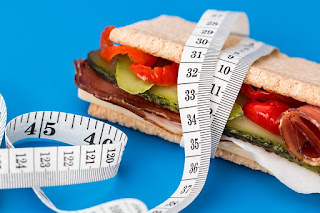All Questions and Answers About The Diet WorldWide
When you want to know how to lose weight, sometimes the answer is really simple.
Here at Eat This, Not That!, we spend a lot of time sorting through medical journals, nutritional databases, and the latest health and fitness research. But our job is to boil it all down into news you can use and, more importantly, remember.
Here’s how to answer their questions and concerns. ok, just go ahead.
Q: I’m new to this whole nutrition thing. Where do I start ?
A: At Precision Nutrition, The first step is to identify and remove the shortcomings. Clients do not need a massive improvement on the first day. They just need to improve nutrition or major vitamin deficiencies them. This means that, for most of your clients, make sure they get a little more protein, vitamins and minerals, adding healthy fats, and more water will get their bodies work better in a short time.
Then, once nutritional deficiencies are addressed, you can start to focus on things like food quality (i.e. eat whole, minimally processed foods) and food amount (i.e. portions, calories, etc). But go slow. And be systematic.
Q: I’m working out more than ever but still not losing weight. Why not?!
A: You’re eating too many calories.
Q: How do I always stop wanting a dessert after lunch and dinner?
A: You’ve trained yourself. Untrain yourself.
Q: I hear that fruit has sugar. How much should I eat of it?
A: Eat plenty, don’t drink any.
Q: What’s more important? The number of calories you eat or the type of calories you eat?
A: Pick quality over quantity.
Q: What’s the best diet to follow ?
A: While it seems counterintuitive, you do not have an answer for this. All protocols diet has its pros and cons. Your task is to help each client find the best approach for them, whether it Paleo or vegan, high-carbohydrate or low-carbohydrate, a tight budget or unlimited funds.
The truth is, the human body is amazingly adaptable to a vast array of diets. And the best diet is the one that both matches the client’s unique physiology and is something they enjoy enough to follow consistently.
Q: I go to bed early, but I’m always too exhausted to workout. What should I do?
A: Get checked for sleep apnea.
Q: Why does kale taste so gross but everyone raves about it?
A: You have to “massage” it.
Q: What’s the deal with celebrities cutting dairy and losing so much weight?
A: Lactose can cause bloating.
Q: Do I need to count calories ?
A: This is probably the most common question we are asked. And, in some ways, it was the most difficult to answer.
After all, weight management is a fairly simple equation. Eat more calories than you burn and you gain weight. Eat fewer calories than you burn, and weight loss.
Except counting calories is not that simple. And the human brain is not a calculation engine food.
For one thing, the calorie count is not correct. Ultimately, the long-term success depends on you to develop and use, your innate signaling system. That is why counting calories, while it sometimes produces results in the short term, often backfire in the long run.
In addition, it was annoying to weigh, measure, and calculate all your meals. Especially when there is an easier way.
We recommend beginning with hand-size portion estimating instead. Here how it works:
• Your palm determines your protein portions.
• Your fist determines your veggie portions.
• Your cupped hand determines your carb portions.
• Your thumb determines your fat portions.
This system counts your calories for you, and gets your macronutrients lined up too, without having to do any fancy kitchen math.
Plus, your hands are portable—they go wherever you go, making portion-sizing very convenient.
